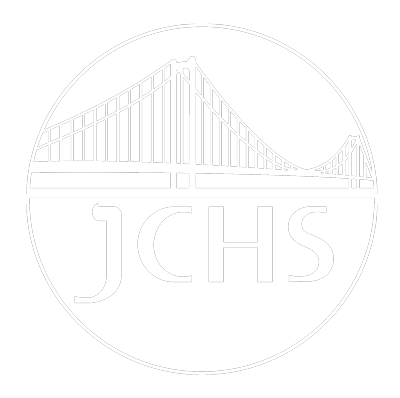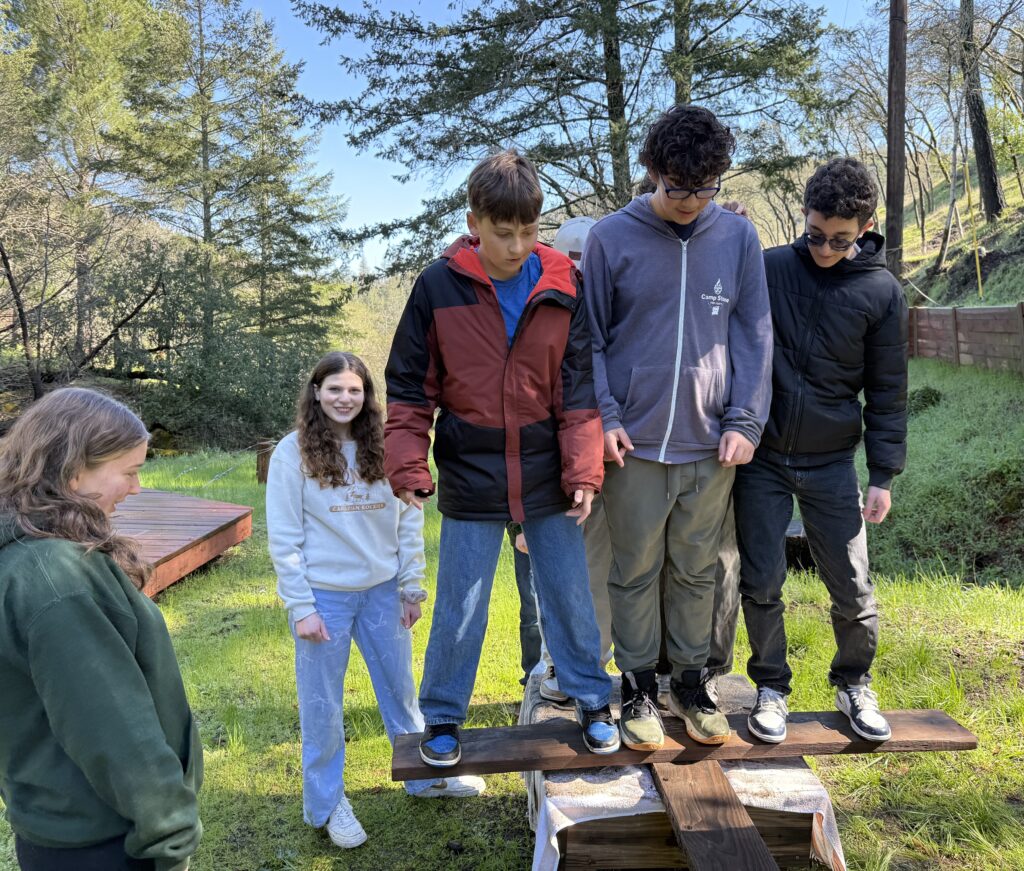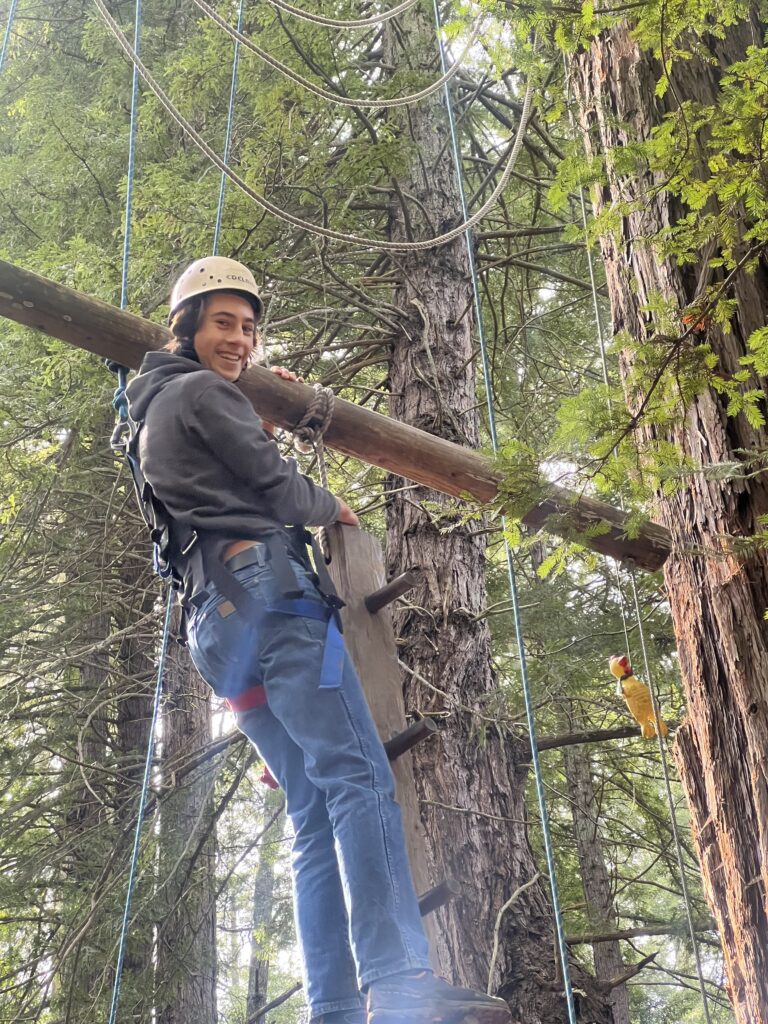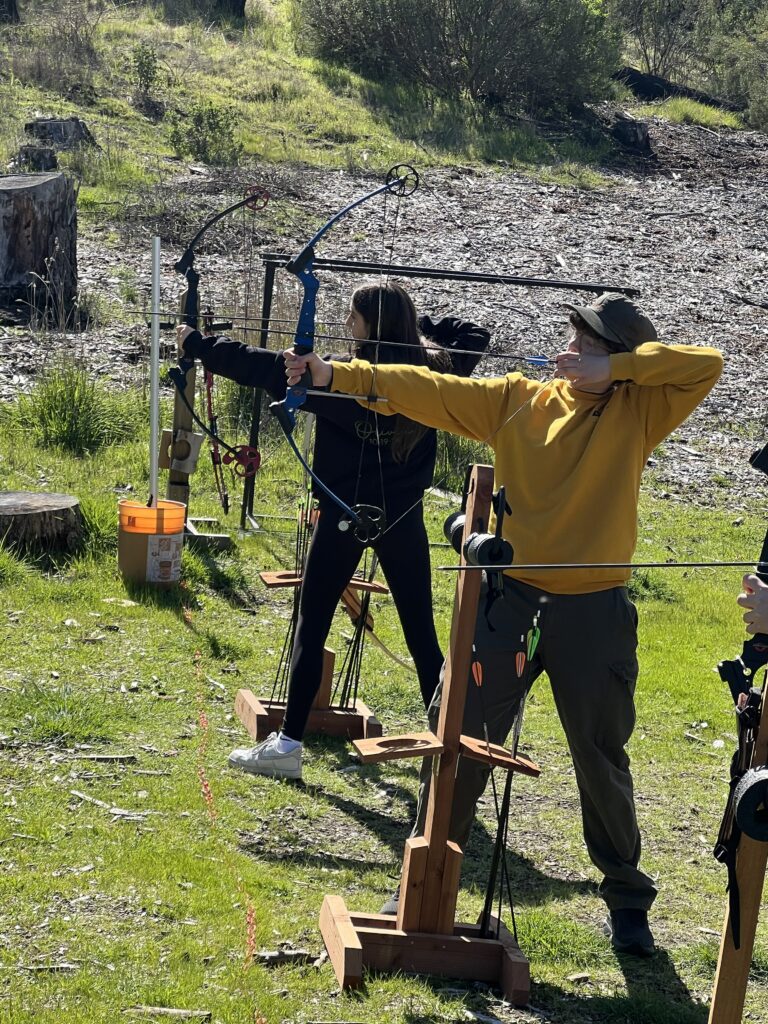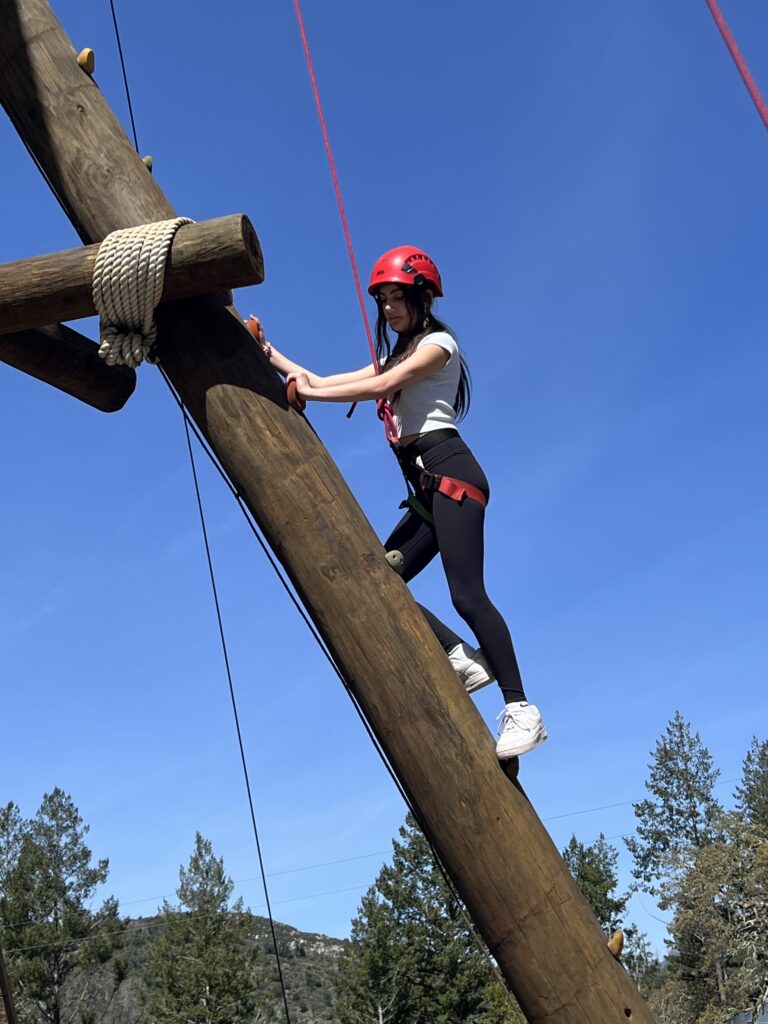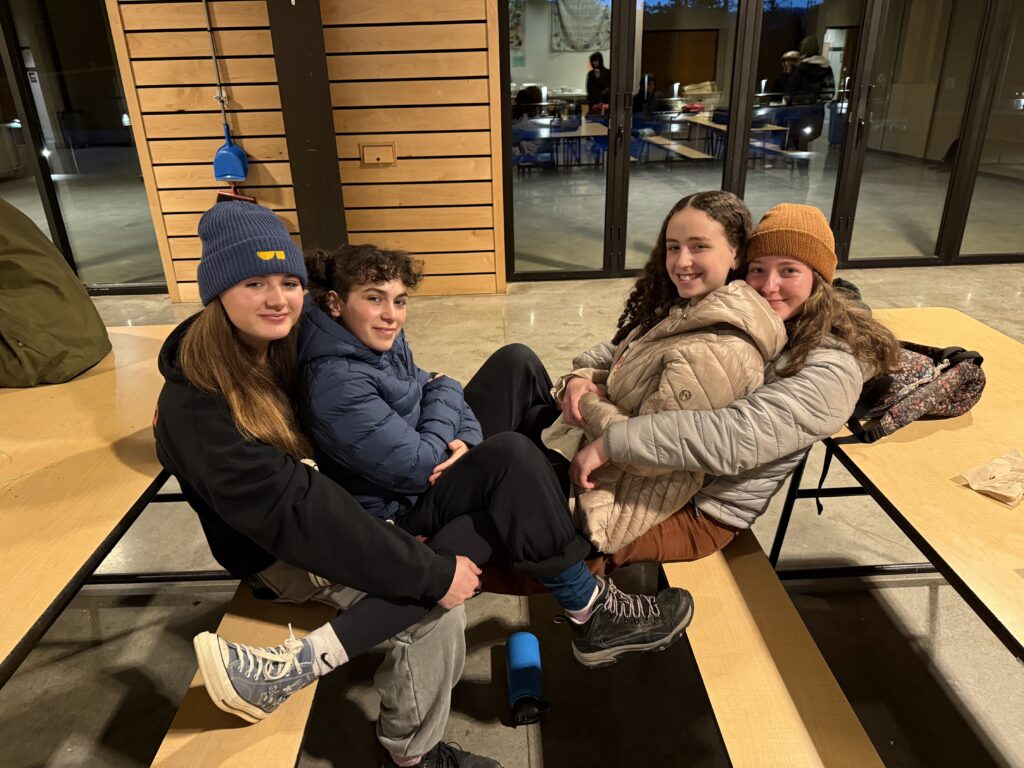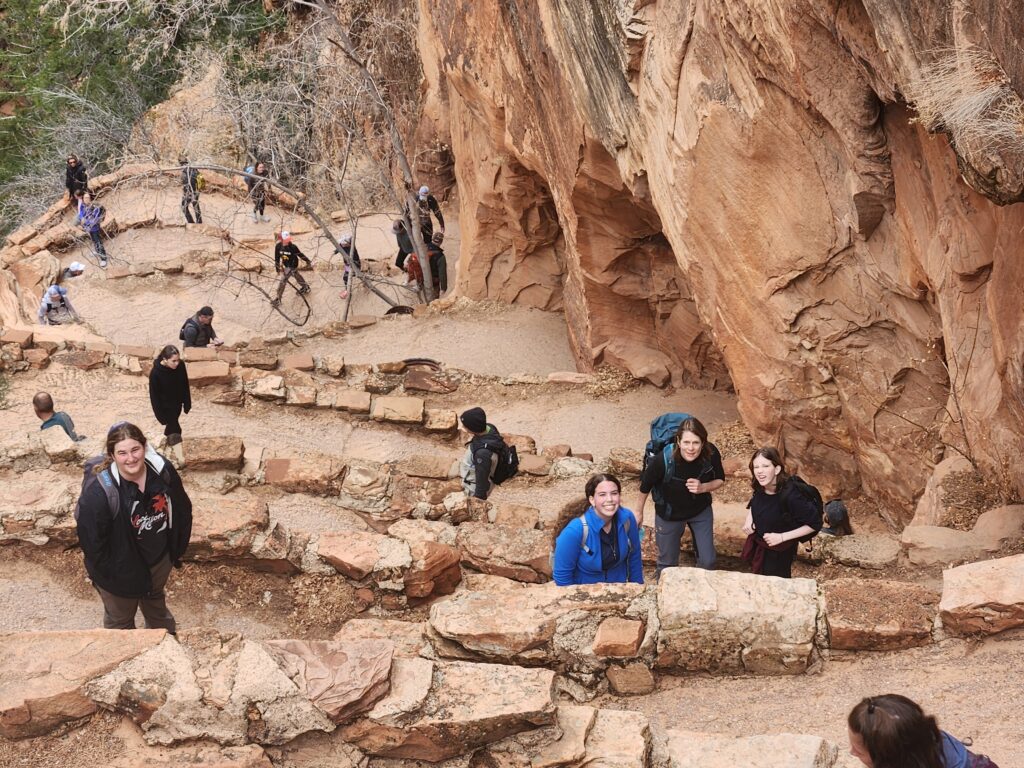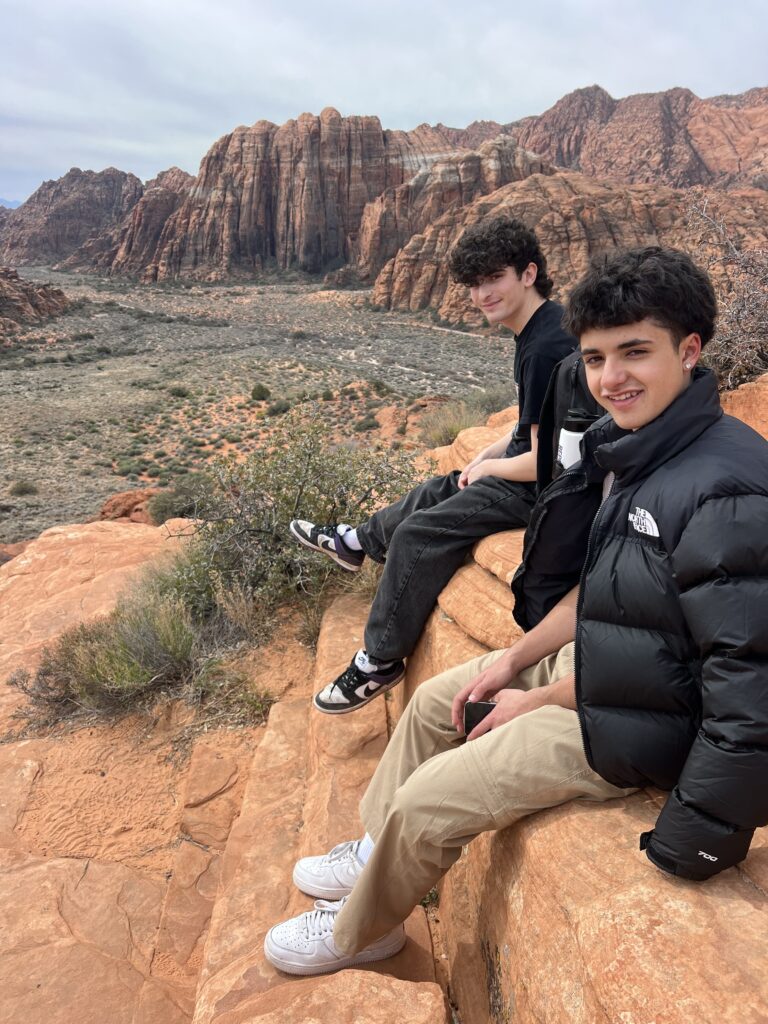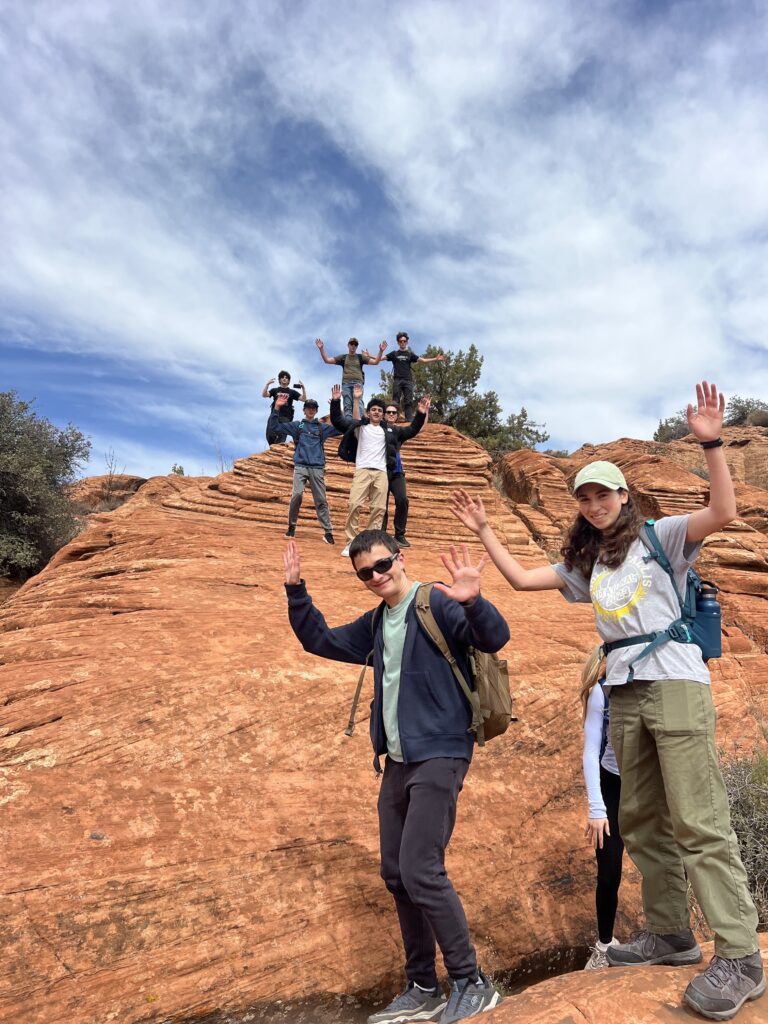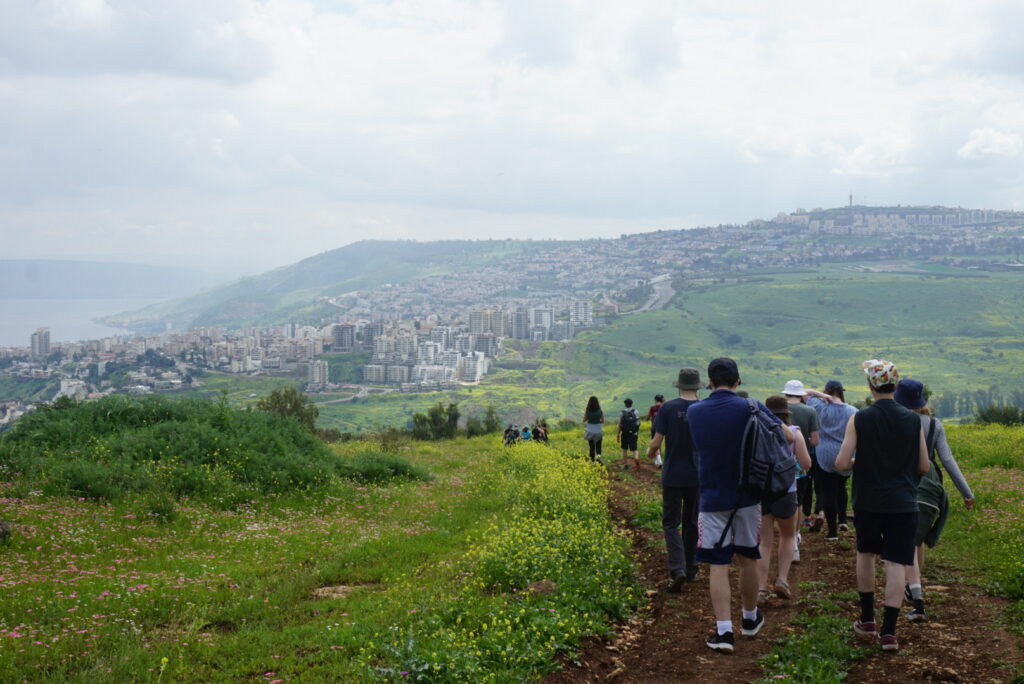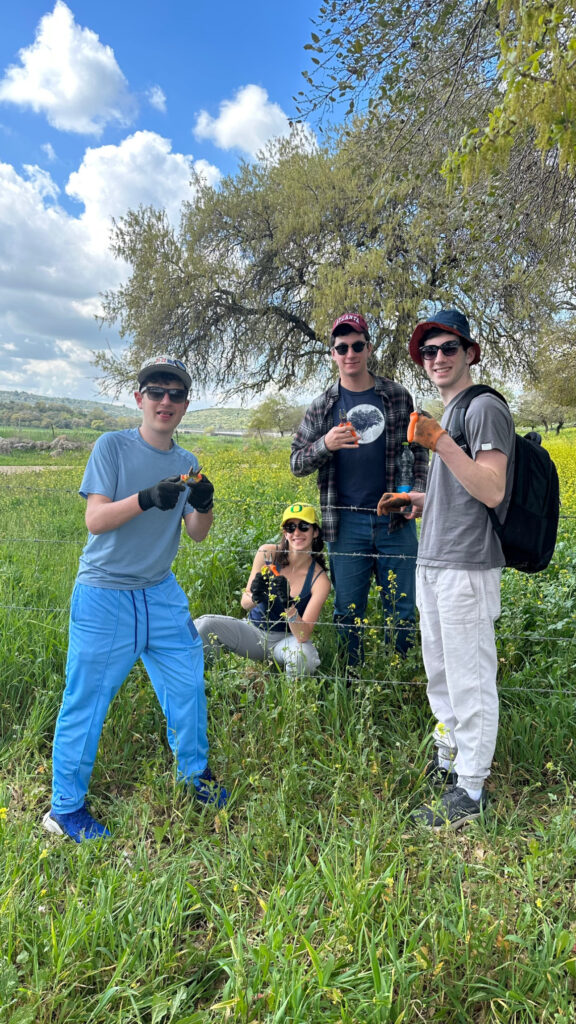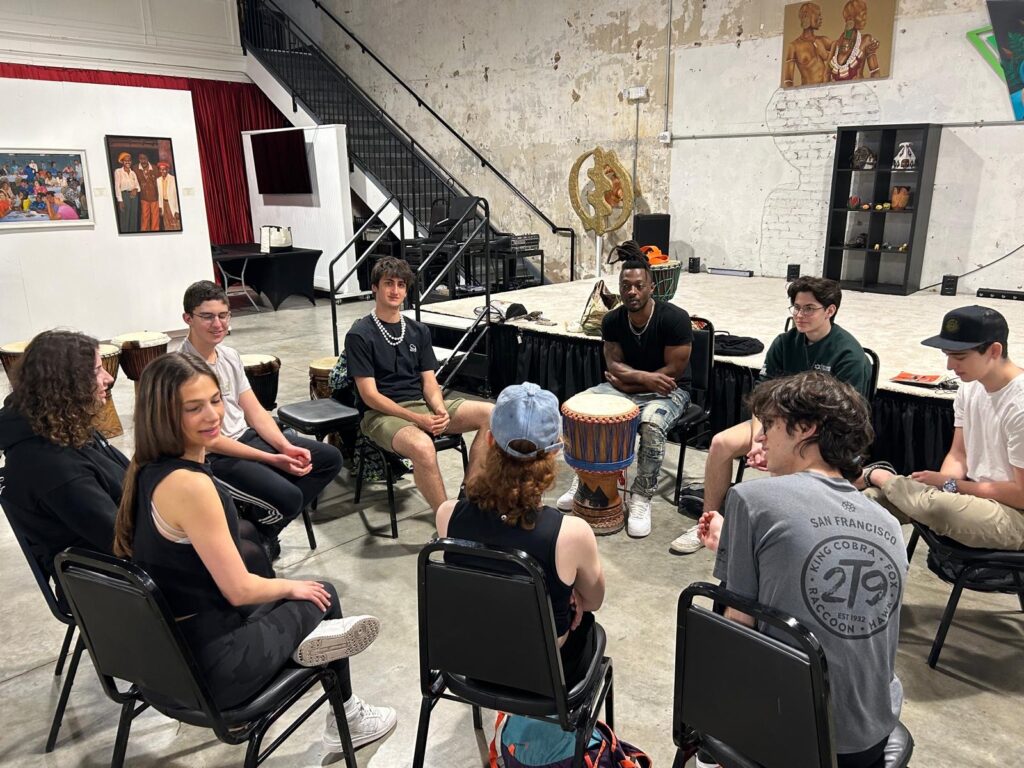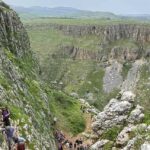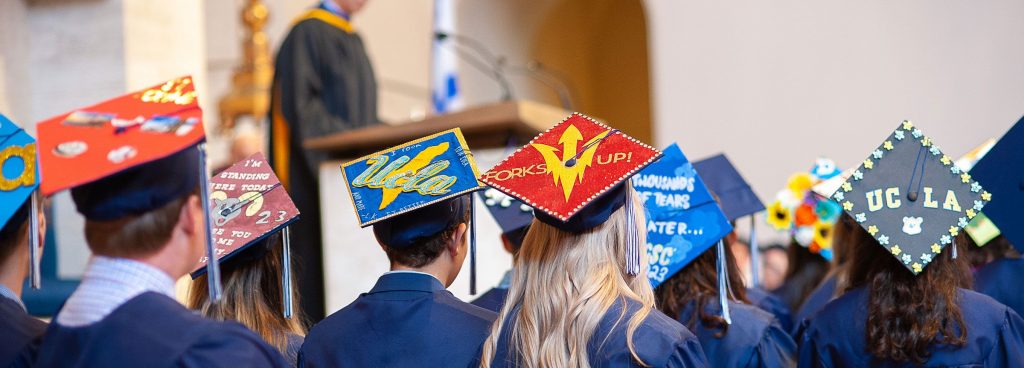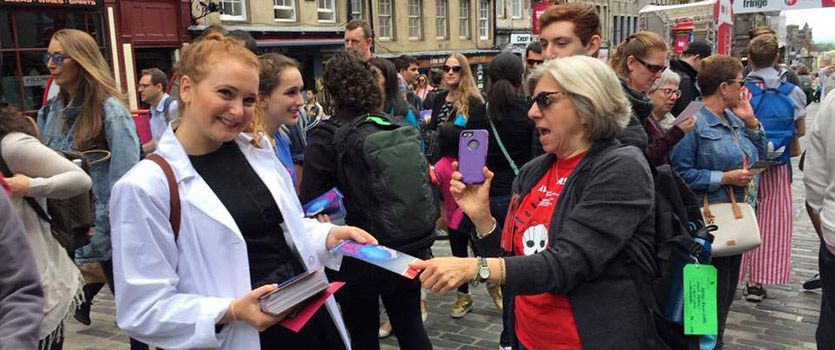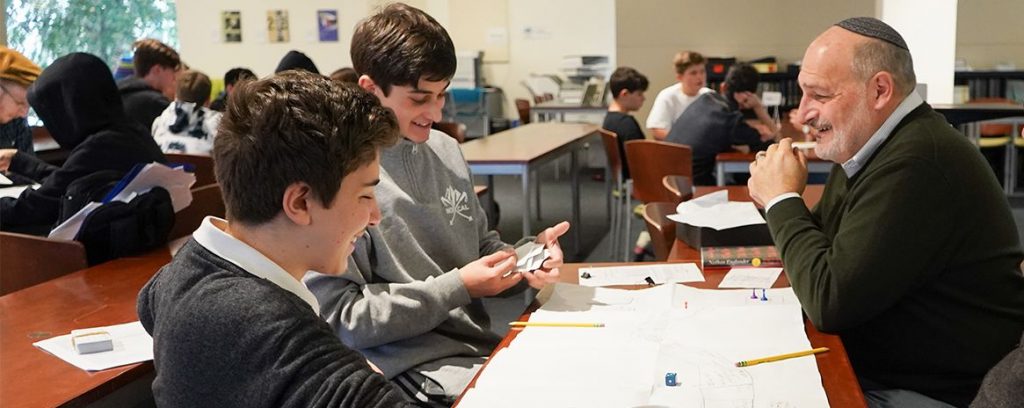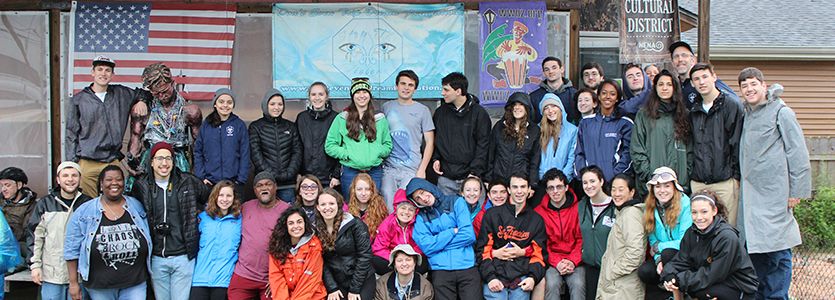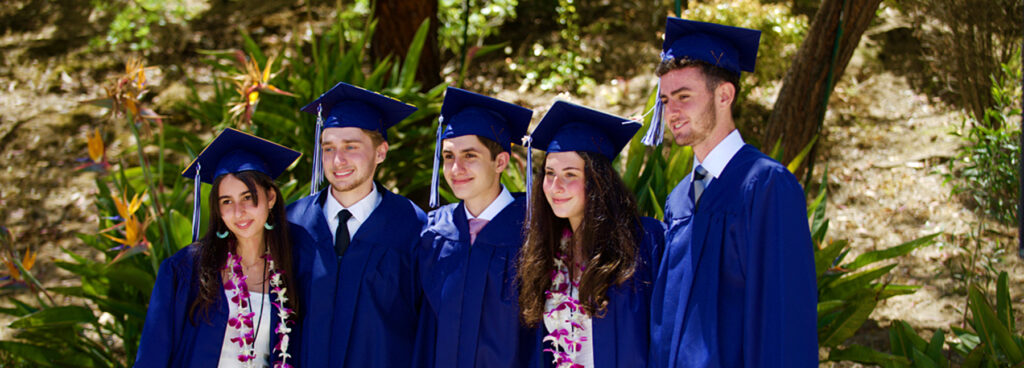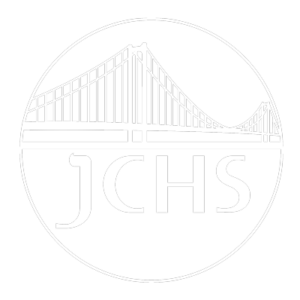Journeys
A Trip transports you. A Journey transforms you.
At JCHS, our four-year Journey program is designed to guide students through their development as individuals, while also fostering a sense of community as a grade. Each spring, students take part in one-week class trips (two weeks for 11th graders), traveling to various destinations in the US and Israel. The Journeys combine learning with multi-day experiential adventures designed to teach life lessons on the road.
9th Grade Journey to Camp Newman
Making Our Machaneh: Creating Our Camp
In 9th grade, students travel to Camp Newman for an experience focused on building a strong “camp community.” Students and teachers engage in group challenges, team-building games, and wilderness skills while learning about what goes into a Machaneh: inclusiveness, respect, communal responsibility, and a deep sense of purpose. Throughout the trip, students reflect on the unique identity of their grade and explore key questions such as: What makes our grade community special? What do I receive from being part of this community? And, how can I contribute back to it?
This adventure not only deepens the bond within the class but also encourages each individual to grow and thrive.
10th Grade Journey to Zion
The Magic of the Canyons: Discovering Our Authentic Self in Nature
In 10th grade, students journey to Zion National Park, one of the most tremendous and beautiful landscapes in the nation, to explore the transformative power of nature. Together, they experience the joy of walking the trails as a community while also embracing new challenges: working together as teams to overcome outdoor obstacles, learning to trust senses other than sight, appreciating the stillness and peace that comes with solitude, and embracing the power of “deep silence.”
JCHS works with Zion Mountaineering School (ZMS), a Utah-based outdoor outfitter as the group hikes, rock climbs, and canyoneers through the canyons surrounding Zion National Park. ZMS is a recipient of the Trip-Advisor certificate of excellence, and their guides have eleven years of experience in leading groups through canyon/rock excursions. Their managers are AMGA Certified Rock Guides. ZMS and JCHS Professional Community members guide students through activities designed to develop knowledge and skills, to open the senses, and to form new friendships and foster grade-wide bonding.
11th Grade Journey to Israel
Toward Connection and Peoplehood
Whether they have visited before, or are seeing it for the first time, JCHS students are forever shaped by their encounter with the land of Israel on the 11th grade Journey.
The most impactful and tangible portion of our Israel curriculum is our 11th Grade Journey—Toward Connection and Peoplehood which takes the 11th grade students to Israel. Here they come face-to-face with Israel’s rich, diverse, complex society, meeting the people who live there and exploring the physical landscape first-hand. They experience the challenges of building a modern state and developing an energetic, expressive, and modern culture informed by ancient themes, contemporary Hebrew, and the rhythms of Jewish life.
By the end of the journey, students return with a deeper understanding of Israel’s rich, diverse, and complex society. They have expanded their knowledge of Israeli politics and wrestled with the complexities confronting modern Israel. And through the experience of the physical land and forging personal connections with Israeli peers, our students have developed a meaningful relationship to Israel and discovered first-hand the role it has played in shaping the identity of the Jewish people.
The experience engages these young adults with Israel and its culture in a way that supports the deepening of their own Jewish identities. Using guided reflection, they emerge with a broader perspective about the role of Israel in American Jewish life and the skills necessary to advocate for Israel on their college campuses.
12th Grade Journey to New Orleans
In their final year at JCHS, seniors are poised to travel to new places and integrate into different communities. The 12th grade class travels to New Orleans to consider what it takes to deeply encounter new communities. New Orleans is one of the most culturally rich cities in the country: the birthplace of jazz, a culinary capital, and host to many celebrations including the annual Mardi Gras Festival. It also faced an epic disaster that has changed the city forever, Hurricane Katrina.
What does it take for the culture and people of a city to survive? During their time in New Orleans, students meet with local community leaders, activists, and youth as well as experiencing live music, hands-on service projects, the historical French Quarter and the swamp-laced landscape of this incredible city. Students explore how a city can change in a way that is sustainable and inclusive. All the while, they will reflect on what it means to have an authentic connection to a new place, as a traveler rather than as a tourist.
